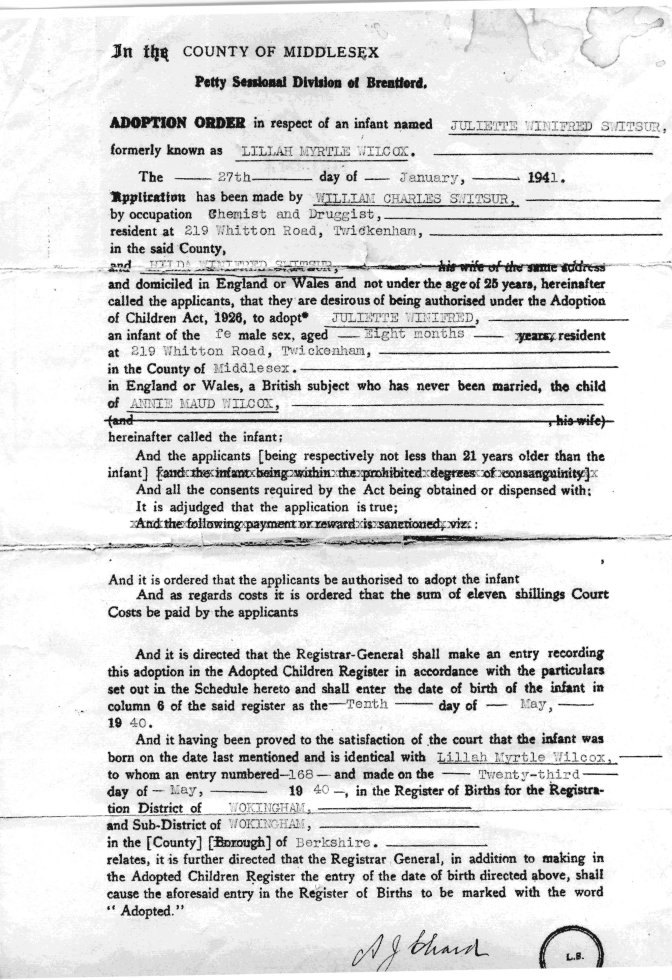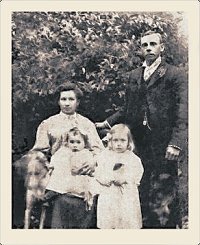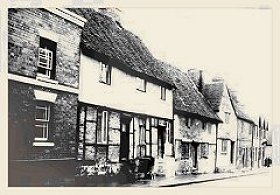
People who live in the UK are entitled to search for their lost parents and children if they wish, and so, as soon as both my adopters had died, I started trying to find out more about my natural family. I had my adoption papers to start me off.

Knowing nothing about genealogy I paid for someone experienced to find out about my immediate family. Although (as I later discovered) some of the information was incorrect and some was missing, at least I got to know my motherís maiden name. (Her husband was not related to me and nothing was known about my father, so this narrowed down my search.) Because there are very few people in England with this particular surname I decided I would write to everyone I could find in the phone book and the electoral registers, and I sent out my first two letters. Lo and behold, I had a reply back almost immediately from the widow of my motherís only brother. With a photograph of my mother. My search was over.
Documentation about my family was easy to find. Two cousins had already done a lot of research and I was soon in regular contact with one of them via the internet. I decided to set up a genealogy website devoted to my motherís maiden name and was obsessed with this for several years Ė it brought me into contact with many relatives from all over the English-speaking world.
But it was the personal information that was so important to me, and I can only imagine what it might have been like to grow up in my own family. Some of the most obvious differences are listed here. Differences of temperament, intelligence and physical abilities were also in evidence.
Books: My adopters were not at all interested in books and only had about 15 on the bookshelf in the front room. I could probably list them all Ė gardening, cooking, decorating, sewing, health, bible, pharmacopoeia (my adoptive Dad was a pharmacist.). As a child I loved books and often spent Saturday morning reading in the local library, furious that we were only allowed to take home three books a week. I became a librarian when I left school, and later worked as an editor, and then as a proof reader for Penguin books. Talking with my half sister on the phone on one occasion, she let drop that there were always books available in her childhood home and that everyone loved reading. She and I share a passion for detective novels.

Pets: Here again, I donít know of anyone in my adoptive family who has kept a pet, except for one aunt by marriage. I was brought up as an only child, with no playmates living nearby: I longed desperately for a cat or dog. My adoptive parents tried to oblige, with a budgerigar, a tortoise and some goldfish, but my fantasy life for some time revolved around two Alsatians, named Solomon and Sheba, that I swore I would have one day. Solomon and Sheba never materialised, but since I grew up I have never been without at least one doggy companion, and usually two. How I cried when I saw this picture of my grandfather and grandmother, with their first two children, and two dogs !

Houses: To be honest, I donít know what sort of house my natural relatives prefer, but I do know the kinds of houses that my adoptives like, and nothing could be more different from my own tastes. I have never, as an independent adult, lived in a house built later than 1900, and I was therefore thrilled to see this photo of the house I was born in (the second from the left, with the pram in front of it). I am for ever grateful to the researcher who helped me to get this picture, for by the time it arrived the house had been pulled down many years since. It was the house of my motherís best friend, Lillah, after whom I was named, and it was still my motherís address when she registered me at two weeks old.
These are just some of the more obvious discrepancies between my two families, and there must be many more, and probably some that Iím not even aware of.
I am very lucky to live here in the UK, for I know that in the USA, birth certificates in most States are falsified, with the collusion of the government, so that it appears as if adopted children are in fact the natural children of their adopters. They are not entitled to find out even the names of their parents, always supposing they know they have been adopted.
Whatever will future family historians think, when they come across photos of Chinese or African children whose records show them to be direct biological descendants of the Pilgrim Fathers..................?